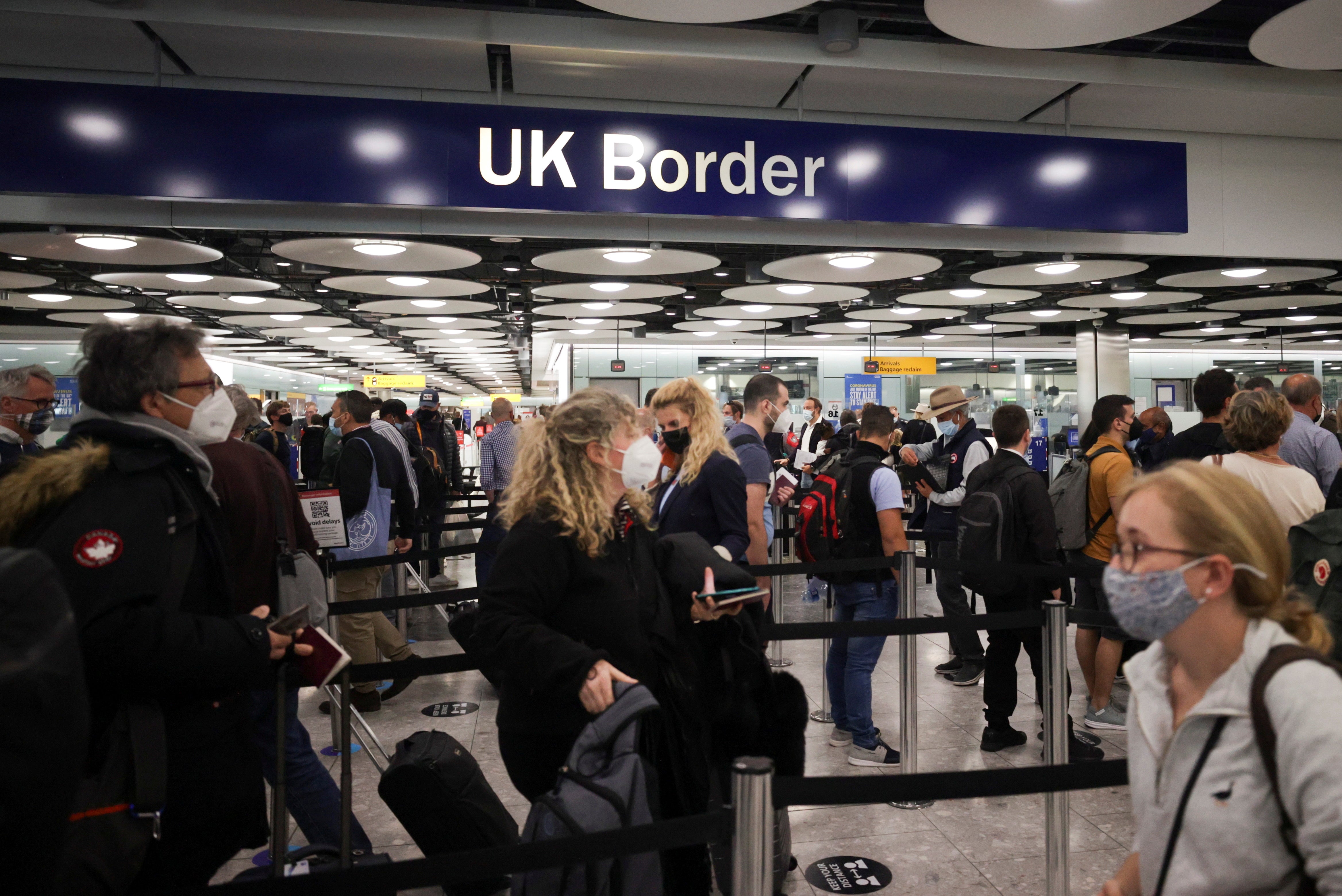Will UK citizens need a visa to enter the EU under Brexit?
Simon Calder on crossing European borders with only an ID card, expiry rules for UK passports and taking the train from Edinburgh to London


Q You wrote about the UK removing the opportunity for European Union citizens to visit Britain using only an ID card. But the EU are less than gracious. They are more than happy to introduce a visa charge soon. We’re not reciprocating with that charge. So wasn’t it reasonable of us to impose a requirement for EU travellers to have passports?
Name supplied
A From 1 October, the long-standing privilege for citizens of European Union countries to enter the UK will end. This represents one of the pledges made by Brexiteers in the referendum on EU membership. At the time, there were concerns about security shortcomings for ID cards compared with passports, allowing illicit migration to the UK. Ironically, the rejection of identity cards comes as the European Union rolls out ID innovative requirements that are more secure than passports – with chips storing biometric details such as fingerprints.
Outside the EU, the UK is able to make whatever stipulations it wishes on documentation for visitors, including retaliation for increased barriers to enter. Please bear in mind, though, that the UK helped develop the planned Electronic Travel Information and Authorisation System (Etias) while still a member of the EU. Work on strengthening the European Union’s external border was already under way before the referendum in June 2016. So this “eurovisa” can hardly be counted as a surprise or a penalty aimed at the UK. Like the US Esta, this online permit requires a fee – in this case €7 (£6) for a duration of three years. It was originally planned to come into effect in 2021 but is running a couple of years late.
The UK plans its own system; the government promises “an Electronic Travel Authorisation (ETA) scheme for those passengers visiting the UK … who do not currently need a visa for short stays”. This will probably involve a charge to cover the cost of administration, so I call that reciprocation.
Finally, as Mark Smith (“The Man in Seat 61”) points out: “Every time you make something unnecessarily difficult, you lose a percentage of your business.” I predict a sharp fall in tourism to the UK as a result of the change on 1 October and am happy to place a small bet on the UK once again allowing European ID cards to be used within the next decade.

Q Can you clarify the six-month rule for passports? I am a British citizen resident in Italy, with a biometric Italian residency permit to prove it. I am planning a short trip back to the UK in a few weeks, returning to Italy on 6 October. The easyJet website says that UK passport holders travelling to a European Union country must have at least six months left on their passport. My British passport expires in March 2022. As I have residency, will this apply to me?
Name supplied
A I am unaware of the “six-month rule” of which you speak. It is certainly true that easyJet says for travel to Europe, a UK passport must “have at least six months left on it”. But this is nonsense. I have reminded easyJet, once again, that the rules that count are those imposed by the European Union, which says: “If you are a non-EU national wishing to visit or travel within the EU, you will need a passport valid for at least three months after the date you intend to leave the EU country you are visiting.”
Anyone who was turned away explicitly because of easyJet’s mistaken policy would be able to claim both a rescheduled flight and hundreds of pounds in compensation from the airline.
But there is another condition imposed by Europe that could mean, after all, that your passport has insufficient validity. While the UK was part of the EU, many British passports were perfectly legally issued for more than 10 years. This very sensible policy was for people renewing their travel documents to be granted up to nine months’ extra validity in recognition of unspent time. But when the United Kingdom left the European Union. it became subject to a long-standing EU rule that passports should be “issued within the previous 10 years”.
Your travel document may breach this condition. While your Italian residency permit may trump any passport discrepancy, the problem is that an airline may (legally) not let you board an international flight. So it may be that you will have to spend some of your time in the UK organising a replacement passport – either a same-day appointment at a passport office or the less expensive one-week (often faster) fast track.

Q I live in East Lothian (east of Edinburgh) and was interested in your article about the new Lumo budget rail service between London and Edinburgh. Is there anything, other than market forces, to prevent them charging for luggage at a later date, ushering in a race to the bottom across the industry?
John J
A From 25 October, a new train operator will go into direct competition with LNER on the East Coast Main Line between London King’s Cross and Edinburgh Waverley – also serving Newcastle and Morpeth in northeast England. Lumo, as it is interestingly called, is an “open access” operator with permission to run five daily trains each way between the English and Scottish capitals.
I see it as a bold and valuable initiative. For LNER, a rival with low fares and comfortable trains will incentivise even better performance. Lumo also has the stated aim of wanting to win market share from airlines: at present, British Airways and easyJet have more than 20 departures each way, each day, between London and Edinburgh.
What puzzles me about the venture is why Lumo is indistinguishable from other train operators and has so little in common with budget airlines. When the plan was first mooted by parent company First Group, I was under the impression that “East Coast Trains” (as it was originally known) would be distinct from all the state-controlled rail firms – which these days is practically all of them.
Yet I can buy a ticket through any of the normal online train services, which suggests some margin is being surrendered by Lumo. I can use a railcard, which has the ridiculous effect of reducing the £4.90 cost of a Newcastle-Edinburgh ticket to £3.20. I’m absolutely happy to pay less than a fiver for 124 miles of high-quality rail travel and cannot understand why I am being invited to pay less.
On luggage, I can bring a large case and a smaller piece of hand baggage free of charge. Lumo could introduce fees for bags, but I think at this stage it will be happy to have this point of difference with the airlines. But I am not counting on being able to book a Lumo ticket on the LNER website with a railcard discount forever.
Email your questions to s@hols.tv or tweet @simoncalder






Join our commenting forum
Join thought-provoking conversations, follow other Independent readers and see their replies
Comments